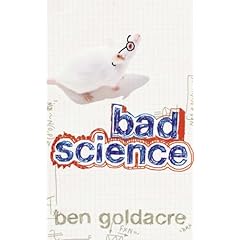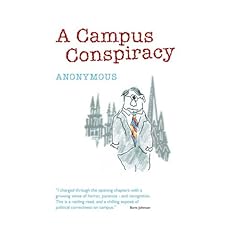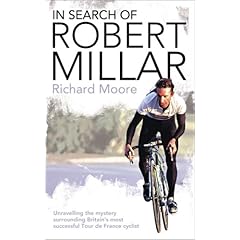When we first visited Lochedge Guest House in 2012, Richard Barrett, who runs Lochedge, mentioned he was just completing a book on cycling in the Hebrides. By the time we returned in 2014, the book was approaching a reprint, and there were a couple of copies in the B&B. After leafing through one of these, I decided to buy a copy on my return.[caption id="" align="alignleft" width="187"] Cycling in the Hebrides cover[/caption]Physically, the book is conveniently sized for stuffing in a pocket or handlebar bag. But its small size doesn't detract from its contents. In its nearly 300 pages, all of the Hebridean islands from Arran to Lewis are well-covered, along with a number of linking routes, many on the west coast of mainland Scotland, which enable the individual routes to concatenate into lengthy tours. I have on many occasions ridden on Mull, Skye and the Outer Hebrides, and many of the west coast roads, and I think Barrett's descriptions of these routes are accurate and well-described. I imagine that the routes I've not ridden so far will be likewise accurate.The routes include maps and (usefully) altitude profiles. The descriptions include useful factoids such as places to eat and where bike shops are (they can be few and far between), along with interesting facts about locations that pique one's interest.While the main part of the book consists of six geographically grouped chapters of cycling routes, they are book-ended by an introduction that give well-considered advice on planning a trip (including equipment, weather, maps, and suggestions for tours), and a series of useful appendices with summaries of the routes, ferries and so forth. I am particularly taken by the table of possible day trips to the minor islands (e.g. a day trip to Coll is possible from Oban on Thursdays in the summer, with a possible stay on Coll of 8 hours).Having read the book, I am now planning excursions to the southern and minor islands!Highly recommended, even to those (like me) who may have cycled extensively in some of the Hebrides before.Cycling in the Hebrides - Island touring and day rides by Richard Barrett Pub Cicerone Press ISBN9781852846435

From Stars to Stalagmites - How everything connectsWorld Scientific 2012 ISBN 13 978 981 4324 97 7Paul S. Braterman*I am a pretty avid reader of popular science books, but generally speaking I've mostly read books with a general emphasis on biology, particularly evolutionary biology. From Stars to Stalagmites is therefore a bit different from my usual reading fare, taking a chemist's view on the world. In essence, the book spends 16 chapters explaining how we know stuff. Stuff ranging from the age of the Earth to how CFCs were incriminated as the cause of the ozone holes. Many of these accounts are told with specific reference to the people who shaped the theories and the science. I don't mean just the scientists - policy-makers and politicians also feature highly - a good example being the chapters on figuring out the cause of the ozone hole and on global warming.I could summarise this book as "a collection of stories about stuff", but that would ignore the central theme that comes across as one read through the book: how we know how natural processes work, and how we can use this understanding to probe the deep history of our planet, figure out how to rescue our planet from anthropogenic destruction and so forth.On reflection some, if not all, of the chapters come across as excellent material for presentations. Whether such has been the origins of the work or not, I do believe that the book itself would have benefited from a bit more in the way of illustration...For me, stand out chapters include the opening chapter on the age of the Earth (Chapter 1), that on Fritz Haber, the First World War and explosives (Chapter 6), and the 14th Chapter on why water is weird. But I guess those preferences reflect my interests; the book is consistently interesting and clearly written.In dealing with the evolution of ideas about the Earth's antiquity, Braterman effectively sets the stage for all the controversies manufactured by the biblical literalists who insist in (mis)interpreting the bible to deduce that the Earth is a mere 6000 years (give or take a little). The chapter takes the reader on a journey in the changing scientific understanding of earth science, which neatly encapsulates the nature of scientific discovery. I think this example illustrates the value of this book. It's not necessarily in its factual content, but in the way rational and thoughtful investigation of the world and its material phenomena can lead to clearer understanding of the world around us. And more than this, several chapters describe how current understanding can and does change as science advances, both in terms of techniques and in the application of knowledge from disparate areas of investigation.To conclude, From Stars to Stalagmites is a valued addition to my bookshelf and a fine example of popular science writing.*Disclosure: Paul Braterman is a BCSE committee member, as am I.[cross-posted from Wonderful Life]
This is a Rouleur publication (under the Bloomsbury imprint), and in common with that magazine, it's chock full of photographs, printed on high quality paper. In his introduction, Sykes admits he'd always promised that he wouldn't write a biography of Fausto Coppi (there are quite afe of those around). What this book represents is a collection of photographs from Coppi's career, punctuated with interviews with some of Coppi's contemporaries. Sykes' intention is to preserve the memories of these veterans.In this, the books succeeds admirably. It's not a book that provides a detailed biography of Coppi - you have to look elsewhere for that - but for all that it's delightful to read and to savour the often superb photography, with some of the often painful eyewitness testimony.The design of the book is lovely, with excellent reproductions of the photos on heavy paper. Unfortunately the photos are not captioned, so relating them to thw interviews is not always easy. As a nice touch, the text pages are tinted in what appears to a pale Bianchi celeste.Coppi: Inside the legend of the Campionissimo, by Herbie SykesPublished by Rouleur via Bloomsbury Sport £27-ishISBN 1408181665
Scott's Last Expedition - The Journals of Captain R. F. Scott (Folio, 2009)
This was one of my selections for my 2009-10 membership of the Folio Society. It is Volume 1 of the original publication of the account of the Ill-fated 1910-13 Terra Nova expedition to reach the South Pole. Ultimately of course, the Polar expedition itself came to grief, with the three remaining men dying in their tent trapped by unusually severe weather only a few miles from their next depot of fuel and food (famously, Lt Oates had sacrificed himself a few days earlier in an effort to save the others, while Evans had died earlier, partly as a result of injuries sustained on the return march).
I'm usually reading several books at any one time: sometimes these include books I've already read, sometimes they are the kind of book you don't read from cover to cover (such as technical books).
You can visit my library here (books from my collection added daily)I've been re-reading this book, which I bought and first read when it was published 21 years ago. It is rather unfortunately out of print now, but is available online. L. Ron Hubbard was a pulp fiction writer who, after a less than distinguished wartime career in the US Navy, reinvented himself though Dianetics, later used as the basis for the pretty bizarre Scientology cult. [Note: Scientologists react to criticism fairly aggressively. Critical websites may be attacked by litigation or other means. For example, note the warnings at the Wikipedia page, and this article at The Register and entries about Scientology at Wikileaks]
Ben Goldacre will be familiar to Guardian readers and those (like me) who regularly check up his Bad Science blog. This book shares much of the subject matter Goldacre covers in his blog: bad science journalism, dodgy medical research, quack medicine and the like. Goldacre really considers bad science as it applies to medicine and medical research.
Since I've not finished this book yet, this is not so much a review as a heads-up that it's out, available from Amazon (click the image), and that from the chapters I've read, it's a very readable counterblast to dodgy science. Chapters cover topics such as dodgy health "experts" such as Gillian McKeith and Patrick Holford; media and MMR (and other health scares); CAM "treatments", and much more.
I am not a historian (as should be evident from these web pages), but I am fond of reading books on historical topics. A few years ago, I read Orlando Figes' book on the Russian Revolution, A Peoples' Tragedy, whiach ably describes the events leading up to the revolution and its immediate aftermath. The Whisperers, published in 2007, concerns Soviet citizens' private lives during the Stalin years. The work results from a wide ranging research project (more details from the author's website) utilising Russian and Soviet public and private archives. Eight chapters cover the years from the revolution to the death of Stalin, with a ninth covering the years 1953-2006.
In the first chapter, I felt as though I was setting up to read a book of lists: listsof people, lists of their privations, lists of instances of misused power. However, as I mad my way through the book, I found the stories of families and individual being told progressed very clearly and accessibly. The book doesn't deal with Stalin's personality and motives, but does occasionally deal with individuals with quite close association with Stalin. What struck me as I read the book was firstly the privations that those not Party members had to endure, both in terms of their accommodation conditions but economically, and how they could cope with this in the belief that the Party was a force for good. Intriguingly, people often chose to believe theit nearest and dearest must have been guilty when they fell victim to the apparently randomly applied purges.
Overall, the book presents an important story, in an interesting and acccessible format. This material is relevant in an era where our own personal freedoms are continually limited and eroded in the supposed war on terror. Our government aims to be able to lock our citizens up on suspicion, and without charge for up to 42 days, riding roughshod over hard won civil rights and liberties.In the modern IT era, we see increased data collection by central government, and even private companies have the ability to pry into our web-sufing habits (see my articles on this site on BT and Phorm). Yesterday,the Swedish Parliament voted for routine tapping of cross-border interception of communication. One wonders how the Soviet system managed to so effectively monitor and thereby repress the population in a pre-electronic era, and quite how the impact of IT on surveillance will ultimately impact on our western democratic societies.
Trick or Treatment?: Alternative Medicine on Trial by Simon Singh & Edzard Ernst, published 2008, Bantam press.
I don't read a lot of fiction, but this novel was quite appealing in its subject matter. Written by "Anonymous" (the author would appear to be auniversity academic), the novel is an accurately targeted satire on modern university politics and life. It was lent to me by a colleague, who'd bought it for holiday reading over Christmas.
The principal character is a well to do Professor of Christian Ethics. He's married to lower aristocracy and is successful in academic, if not in modern RAE terms. He is a few years short of retirement, and clearly doesn't fit the bill in terms of academic style. In response to an accusation of sexual harassment, he's hauled over the coals by university officials, many with unhelpful (to the main character) relationships with each other - accusations of bullying and libel fly.
It was a quick and quite entertaining read, though I found the writing style rather unexceptional. nd finally, how does it work as holiday reading? Unfortunately, it is so close to the truth of University politics and devious machinations that at times it really isn't pleasant to read! This hasn't stopped me from borrowing the sequel "Degrees'r'Us".
Envisioning Information by Edward R. Tufte
I got a copy of this book over the Christmas period (I now have all four of Tufte's books). This follows the pattern of the other three - beautiful production values, and an authoritative view (some might say didactic!) of design as applied to the graphical display of information. The book was originally published in 1990; the copy I have is the 10th printing from 2005.
The book has six chapters: Escaping Flatland, Micro/Macro Readings, Layering and Separation, Small Multiples, Color and Information, Narratives of Space and Time, and finally a brief Epilogue.
When I became interested in cycling again in the late 1980s, Robert Millar was for me the big name in the professional peleton. Only being peripherally involved in cycling at that time, I was really unaware of the Millar's full career at that time. Richard Moore has written an excellent account of Robert Millar's rise from Glasgow club cyclist to arguably Britain's finest professional road cyclist.













